The current pandemic and the social, political, and economic upheaval of our times have fueled unprecedented levels of anxiety. According to the US Census Bureau, nearly half of all Americans report feeling nervous, anxious, on edge, or not being able to stop or control worrying. Black Americans, in particular, reported increased anxiety in the wake of the racial unrest as a result of the murders of George Floyd, Ahmaud Arbery, Breonna Taylor, and others. People of every color and political persuasion are feeling high levels of stress and emotional disturbance and are looking for anxiety self help resources.
We all know that the world gives us plenty of good reasons to feel concerned about our lives and our future. But these reasons don’t necessarily have to trigger chronic, debilitating anxiety. In fact, the harder things get in the world around us, the more important it is to find a calm and healthy response.
This is easier said than done, of course. But the good news is that there are many validated self-care strategies that can help you respond to whatever challenges life brings you with as much resiliency as possible.
What is Anxiety?
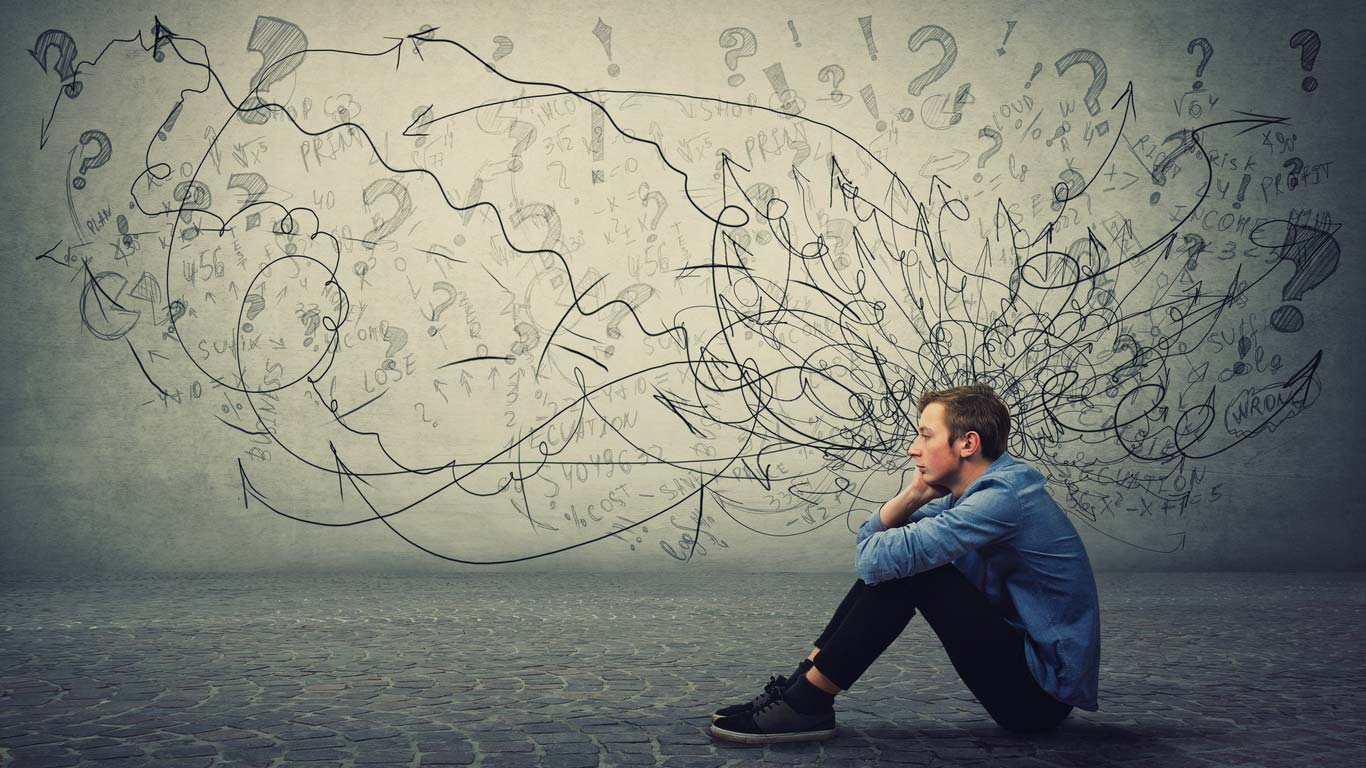
Anxiety disorders are the most common mental illness, affecting, even in the best of times, about one out of every five adults in the United States, and about one in 13 worldwide. In general, women tend to suffer from anxiety more than men. But it can affect people of any gender at any time in their life.
Anxiety is the mind and body’s initial reaction to stressful, dangerous, or unfamiliar situations. Think of it this way: the fight-or-flight response to threat activates our body, while the anxiety reaction immobilizes it. Anxiety is a very useful response to an unknown or surprising threat; unlike fight-or-flight. When you hear the twig snap, or smell the odor of a predator upon the breeze, running away screaming may bring you to the attention of the very thing you’re hoping to avoid. Anxiety, on the other hand, makes you still, watchful, and quiet. It induces involuntary freezing and triggers risk-assessment behaviors. Once you’ve established that there is a threat, its’ location, and what sort it is, you can then shift to whatever response is a more valuable survival strategy.
Anxiety, like all physiological responses, is a useful thing in the right circumstance. In the right dose, in response to the right stimulus, a certain level of anxiety can help you pay attention and stay vigilant in the presence of danger. When anxiety becomes a chronic trait rather than a short-term state, however, things go awry. When anxiety infects the circuitry of your nervous system, you can start imagining dangerous scenarios in your environment all the time.
Studies tell us that 90% of the information traveling between the brain and the body is going to the brain from the body. If a body is sending anxiety signals to its brain, the brain interprets those signals as evidence of real and present danger. This is one of the effects of trauma in a person’s history; they keep experiencing present anxiety over events that happened a long time ago.
Symptoms of Anxiety

Symptoms of anxiety vary from person to person. But the most common ones include:
- Feeling nervous, restless, or tense
- Having a sense of impending danger, panic, or doom
- Having an increased heart rate
- Tightness in the chest and trouble breathing
- Sweating or trembling
- Feeling weak or tired
- Trouble concentrating or thinking about anything other than the present worry
- Having trouble sleeping
- Experiencing gastrointestinal (GI) problems
These symptoms, though distressing, make sense when you consider the evolutionary purpose of anxiety: to increase the odds that we will prevent or survive a surprise attack. Weakness or fatigue can keep us still; while an increased heart rate prepares us to run or fight. Trouble concentrating on anything but the present worry keeps us focused on risk-mitigation. Trouble breathing keeps us quiet.
Some of the symptoms of anxiety, such as insomnia or digestive problems, are not the direct result of momentary anxiety, but rather the toll that ensues when it becomes chronic.
Causes of Anxiety
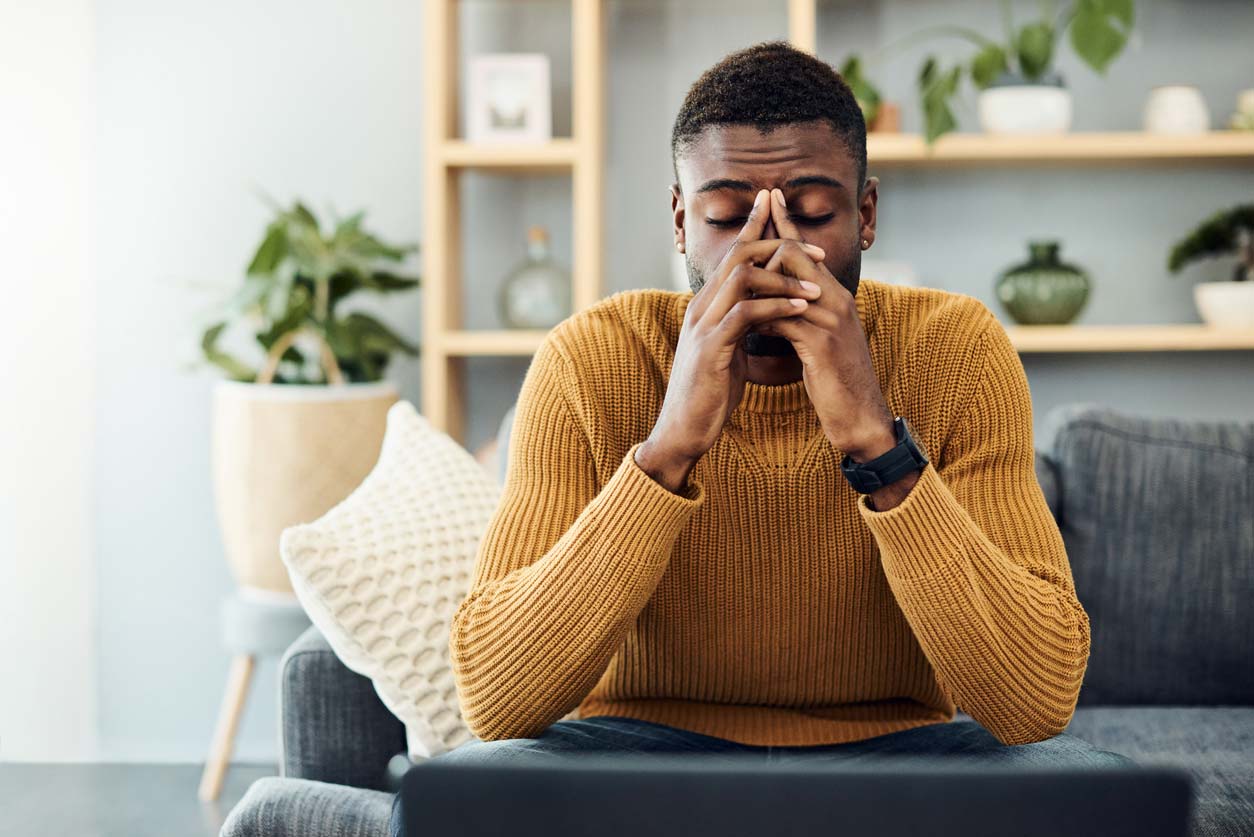
There are many things that can cause anxiety. And for some people, there are multiple causes. Some of the most common ones may include:
Traumatic event(s)
Some body-based therapists define trauma as an “unresolved autonomic nervous system response.” Meaning, something happened to us that caused a survival response — whether anxiety-induced freezing or the beginning of a fight-or-flight reaction — that wasn’t allowed to run to completion because it wasn’t safe, or wasn’t possible. For example, someone is in a car crash, watches their engine burst into flames, and cannot undo their seat belt. Their natural “fight-or-flight” reaction is prevented. And it becomes locked in the nervous system, getting triggered by any situation that reminds the person of their immobility at that moment.
Other traumatic events, such as childhood abuse, similarly prevent a full nervous system response because fighting back is physically impossible. Or because the child has to rely on the abusive adult for survival, and therefore, must inhibit their natural instinct for self-defense.
We tend to think of trauma as mainly stemming from major accidents, violence, or abuse, like the above examples. But trauma can also be subtle — the result of a lack of emotional or psychological needs being met.
Stress due to an illness or major life event
Overwhelmingly stressful life events, such as an illness, a financial disaster, the dissolution of a close relationship, or a death may also trigger anxiety or an anxiety disorder. Some research suggests that close social ties can buffer a stressful event.
Stress buildup
Stress doesn’t have to be sudden, huge, and acute to trigger anxiety. It can build up over time, remaining low-grade in its symptoms until eventually, it maxes out above a physiological threshold. Just like driving a car with misaligned wheels can seem “fine” until the imbalance leads to damage, the constantly growing “allostatic load” of the stress in our everyday lives can tip over into anxiety and anxiety disorders.
Hormonal imbalances and changes
Our moods and attitudes are mediated by hormones and neurotransmitters. If these are unbalanced or depleted, we’re also more prone to mood disorders such as anxiety.
Other mental health disorders
Having another mental health disorder such as depression or schizophrenia makes it more likely that a person will also experience anxiety.
Having blood relatives with an anxiety disorder
There also appears to be a genetic component to anxiety. It’s probably not that some people have specific “anxiety genes,” but rather that some people are genetically or socially predisposed (through their environment and, ultimately, their personality) to caution and risk-aversion. When triggered by life experiences, those tendencies can slip into chronic anxiety.
Drugs (including alcohol)
Both drug abuse and withdrawal from drugs can trigger the symptoms of anxiety attacks. Many people with anxiety also use drugs in an attempt to ameliorate the symptoms and eventually become addicted, so the causal mechanism can go in both directions.
Medical conditions
Several medical conditions can trigger or worsen symptoms of anxiety. Heart disease, diabetes, thyroid problems, and respiratory disorders can all send signals to the brain that “there’s danger present.” And certain rare tumors actually produce fight-or-flight hormones that the body and brain interpret as extreme stress. Many of the medications prescribed for medical conditions themselves can trigger anxiety. And in some cases, nutritional deficiencies can cause anxiety or panic attack-like symptoms as well.
Foods that Trigger Anxiety
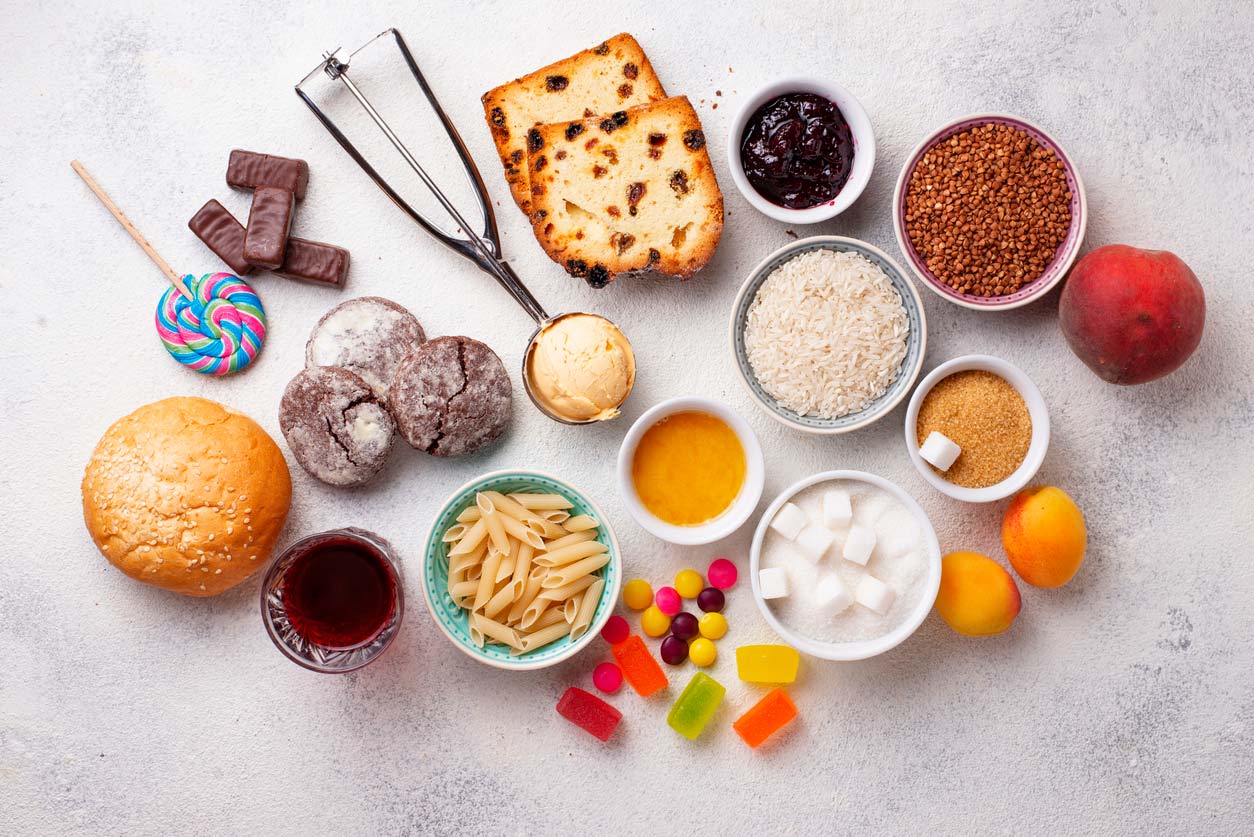
There are a number of foods that can contribute to a higher risk of anxiety. Not surprisingly, these constitute a significant part of the modern industrialized diet. The worst foods for anxiety include:
Refined carbohydrates & sugar
When scientists feed refined carbohydrates and sugars (think cookies, crackers, rolls, pastries, candy, etc.) to mice, they find increased anxiety responses and inflammation in their brains and nervous systems. In humans, there’s strong evidence that poor glucose regulation, with blood sugar rising and falling precipitously due to consuming refined carbohydrates and not enough fiber, causes the body to go into emergency mode on a regular basis. In essence, hypoglycemia (low blood sugar) triggers the body to go into an aggressive stress-response.
Fried foods and trans fats
There are links between fried foods and foods containing trans fats and increased anxiety and damage to the brain and nervous system. Similar to refined sugars, fried foods deliver too concentrated a source of calories to the body, which reduces the efficiency of digestion. Think of Lucy and Ethel in I Love Lucy making more and more mistakes at the chocolate factory as the conveyor belt speed increases (look it up on YouTube if you haven’t seen it!). The more waste the brain has to clean up, the more long-term damage can occur, leading to mood alteration, cognitive decline, and, ultimately, dementia.
Food additives, preservatives, and colorings
There are hundreds of food additives deemed GRAS (“generally regarded as safe”) by the US Food & Drug Administration. But the truth is, very few of them received individual study. And even fewer are looked at for potentially harmful interactions with others. One example is monosodium glutamate (MSG), a common flavor enhancer that produces anxious adult rats when injected into those rats when they’re newborns. Many artificial colors may also affect mood, including Yellow #5, one of the most commonly used food colors in the world.
Alcohol
Alcoholic beverages are closely correlated with anxiety. The obvious connection is that alcohol, as a sedative, is often used by people seeking temporary relief from anxiety. But in the long run, alcohol abuse can create anxiety as well, and increase the frequency and severity of panic attacks.
Caffeine
Caffeine is a stimulant. And, as such, it can keep you awake and feeling full of energy. It has known mood-boosting benefits for some people. But for others, it can easily tip into anxiety — especially at high levels. A 2008 study found that caffeine increases alertness by blocking a brain chemical (adenosine) that makes you feel tired, and by triggering the release of adrenaline that’s known to increase energy. If the amount of caffeine is high enough, these effects are stronger and can lead to caffeine-induced anxiety.
Nutrition for Anxiety
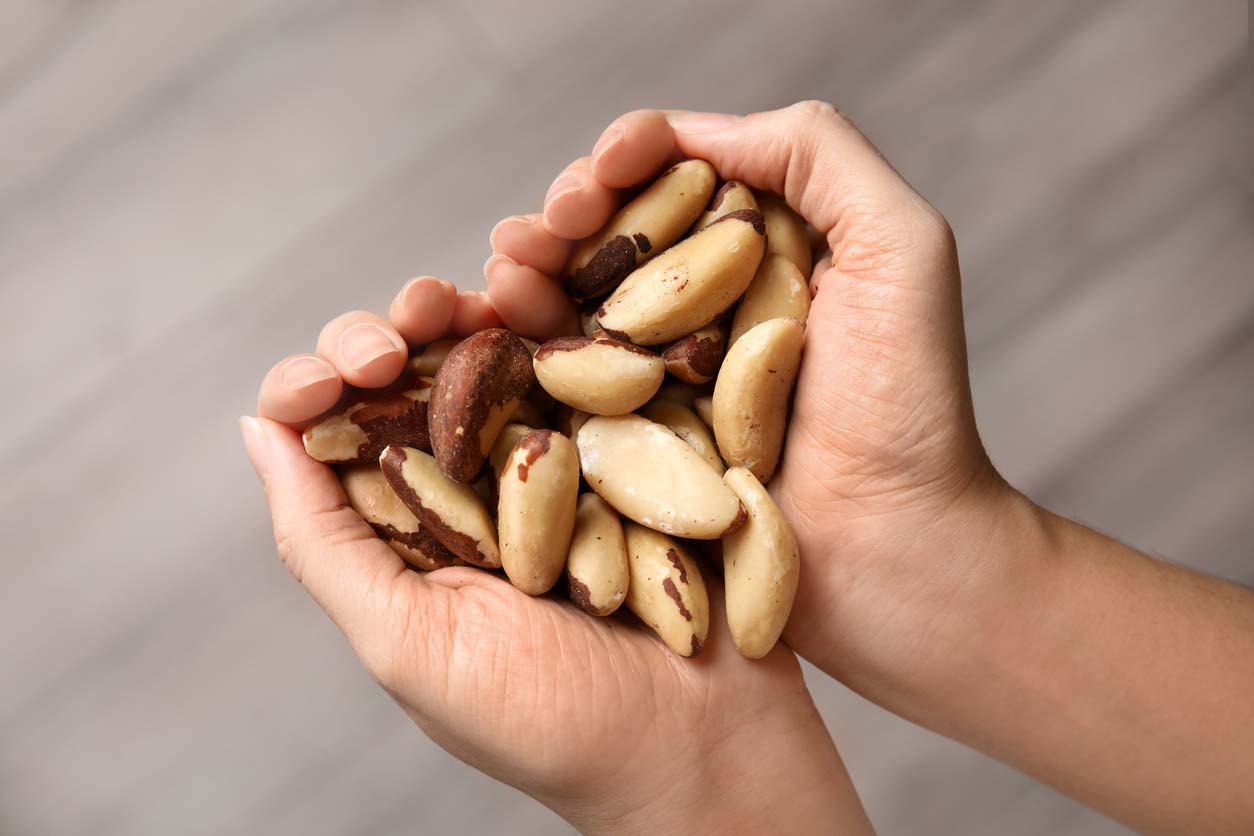
Your brain requires a constant supply of fuel to function optimally — actually, to function at all. That “fuel” comes from the foods you eat. And what’s in the food makes all the difference. What you eat directly affects the structure and function of your brain and, ultimately, your mood. When it comes to addressing mental health, it’s important to examine “your brain on food.” It turns out that the adage “you are what you eat” extends to your mental and emotional experience — not just your physical body.
There is a demonstrated link between nutrition and mental health. Patients suffering from mental disorders often exhibit a severe deficiency of important vitamins, minerals, and omega-3 fatty acids.
Some of the most well-researched nutrients that are important for addressing mental health issues include the following:
B Vitamins
B vitamins, such as vitamin B6, vitamin B12, and vitamin B9 (folate), are especially important when it comes to anxiety. These vitamins help produce and control brain chemicals and influence mood and other mental functions. Vitamin B6, known as pyridoxine, is also necessary for the formation of two neurotransmitters, serotonin and gamma-aminobutyric acid (GABA), both of which can reduce anxiety and restore calm.
Vitamin D
Vitamin D plays a critical role in optimal brain development and is a key ingredient in the production of the neurotransmitter dopamine, which is associated with motivation, reward-seeking, and pleasure. A study of vitamin-D deficient women with type 2 diabetes found that 16 weeks of vitamin D supplementation significantly reduced symptoms of anxiety.
Iron
Iron is necessary for the nerves and brain. A severe iron deficiency in young children can cause irreversible cognitive damage that can lead to lower IQ and delays in development. Iron deficiency can also cause and exacerbate many kinds of psychiatric symptoms. Sometimes iron deficiency will present as anxiety, depression, irritability, and even poor concentration and general restlessness. There’s a much higher prevalence of iron deficiency among children with ADHD. And the symptoms can improve with iron supplementation or consumption of iron-rich foods. However, too much iron — especially heme iron from animal foods — can also be a problem.
Selenium
The element selenium is crucial for brain health and mood. Interventional studies have shown that adequate selenium may improve mood and diminish anxiety. In one study, researchers noted that the less selenium study participants had in their regular diet, the more frequently they experienced episodes of anxiety. And selenium supplementation could help, too. Study participants reported less anxiety after five weeks of selenium supplementation compared to those participants given a placebo.
Zinc
A 2011 study showed that people with anxiety had lower levels of zinc in their bodies than matched controls who did not suffer from anxiety. In addition, the anxious group reported fewer symptoms after a course of supplementation with zinc and antioxidants.
Magnesium
Magnesium may also play a role in regulating the nervous system to reduce symptoms of anxiety. While more research is needed, a 2017 meta-analysis showed a correlation between low magnesium levels and increased anxiety, as well as some data suggesting that supplementation could help.
Omega-3 Fatty Acids
Several studies have shown that supplementation with omega-3 fatty acids can reduce symptoms of anxiety. Researchers theorize that an imbalanced ratio of omega-3 to omega-6 fatty acids (specifically getting too much omega 6s and not enough omega 3s) can negatively affect brain function and can heighten the risk of several mental and psychological issues.
Probiotics
The jury is still out on whether probiotics can help with anxiety. There’s some evidence that a particular strain of probiotic, Lactobacillus (L.) rhamnosus, is associated with less anxiety. To be more precise, the results of 14 clinical trials in humans were inconclusive. But 22 animal studies showed a clear connection. One reason for the discrepancy might be poor quality human diets. Probiotics survive only if they have enough prebiotics — mostly fiber from plants — to feed on. So giving humans probiotics and not seeing positive results may simply mean that the probiotics died of starvation before they could work.
Top Foods & Beverages for Fighting Anxiety
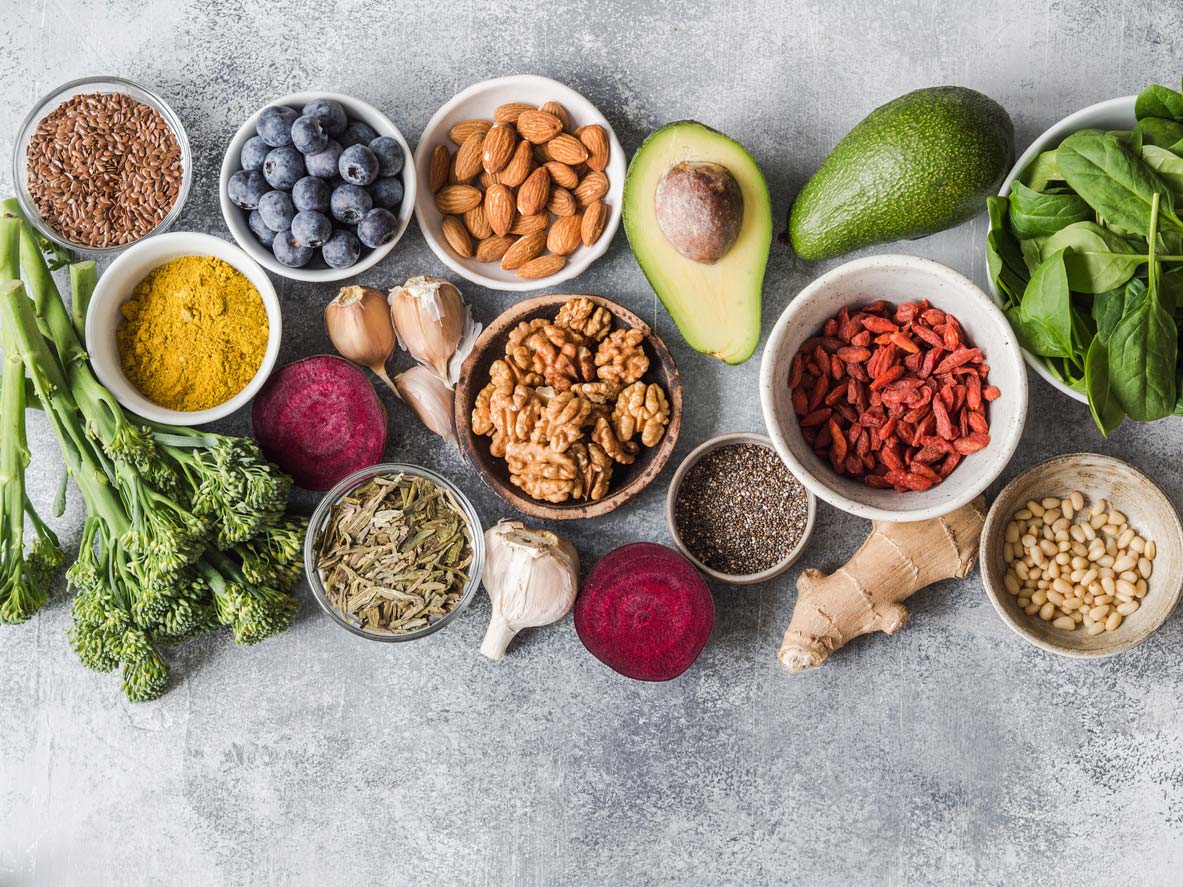
Since we know that certain nutrients are helpful in preventing or even reversing anxiety, the next obvious question is: Where do you get them from? And the answer is (drumroll please)… from food! Here are some of the top foods to feature if you want to cultivate an anti-anxiety diet and lifestyle.
Nuts & Seeds
These are rich in magnesium, as well as tryptophan, an amino acid that the body converts into the neurotransmitter serotonin. Brazil nuts and sunflower seeds, in particular, are high in selenium.
Berries
Berries are fiber-rich. And they’re also antioxidant powerhouses, which can help protect against stress and anxiety. Evidence shows that the antioxidant flavonoids found in blueberries and other fruit are associated with a decreased risk of developing depression in young adults and children. Plus, just thinking about blueberries, blackberries, raspberries, and strawberries may even lift your mood. They’re not just good for you; they’re pretty to look at too!
Tea
Green tea is a rich source of the amino acid L-theanine, which has links to lower levels of anxiety. A 2017 study gave green tea or a placebo to a small group of students. The study found that students drinking the green tea reported lower subjective stress. Many herbal teas that help with anxiety, and may also fight stress, including chamomile, peppermint, lavender, and passionflower.
Beans & other legumes
Both beans and legumes are great sources of magnesium. And they’re a great source of the prebiotic fibers that feed the good gut bacteria. They’re also a healthy source of plant-based, non-heme iron.
Dark chocolate
See, there’s some good news here. Dark chocolate, with minimal added sugars, can improve mood and lower levels of cortisol, a stress hormone. Chocolate also contains magnesium and non-heme iron. And some varieties may include small amounts of B vitamins, including vitamin B6 and B12.
Mushrooms
Several types of edible mushrooms can strengthen the immune system and increase resistance to stress. These include medicinal mushrooms like reishi, lion’s mane, and cordyceps. Lion’s mane, in particular, has anti-inflammatory properties that may contribute to reduced anxiety symptoms.
Adaptogens
Adaptogens are herbs and plants used to help the body adapt to many of the problems of modern living: low mood, stress, anxiety, depression, and a compromised immune system. These include ginseng, goji berry, astragalus, ashwagandha, certain mushrooms, and others.
Leafy greens
Let’s face it, leafy greens are good for just about everything. And anxiety is no exception. Dark greens, such as spinach and Swiss chard, are high in magnesium and antioxidants, both of which may be beneficial in fighting anxiety.
Asparagus
While all vegetables are welcome additions to a healthy diet, asparagus, in particular, appears to have specific anti-anxiety effects. The Chinese government actually approved the use of asparagus extract as a natural food supplement to relieve anxiety.
Avocado
Avocados are rich in B vitamins, healthy fats, and lots of antioxidants. The antioxidants in avocados work to eliminate oxidative stress. Although oxidative stress may naturally occur as part of the aging process, chronic psychological stress can exacerbate and increase oxidative damage. So add some avocado into your diet to neutralize anxiety!
Fermented foods
Fermented foods, such as sauerkraut, tempeh, kimchi, kefir, miso, and kombucha are rich in probiotics and may improve gut health by feeding good gut bacteria. Believe it or not, your gut health plays a major role in overall health and well-being (ever heard of the gut-brain connection?), including mental health.
Anti-Anxiety Recipes
Want to work on your anxiety self help and get rolling with your anti-anxiety menu? We’ve got you covered! Start the day with the 4-Ingredient Banana Oatmeal Breakfast Cookies alongside a Soothing Matcha Turmeric Tea for a boost in digestion and sustainable energy. Follow that with the Ginger Carrot Edamame Noodles for lunch and the Coconut Lime Quinoa and Asparagus for dinner. End the day with a sweet treat by enjoying the antioxidant and omega-3-rich Blueberry Chia Oat Crumble. And sleep soundly after a full day of mood-supporting and stress-relieving meals.
1. 4-Ingredient Banana Oatmeal Breakfast Cookies
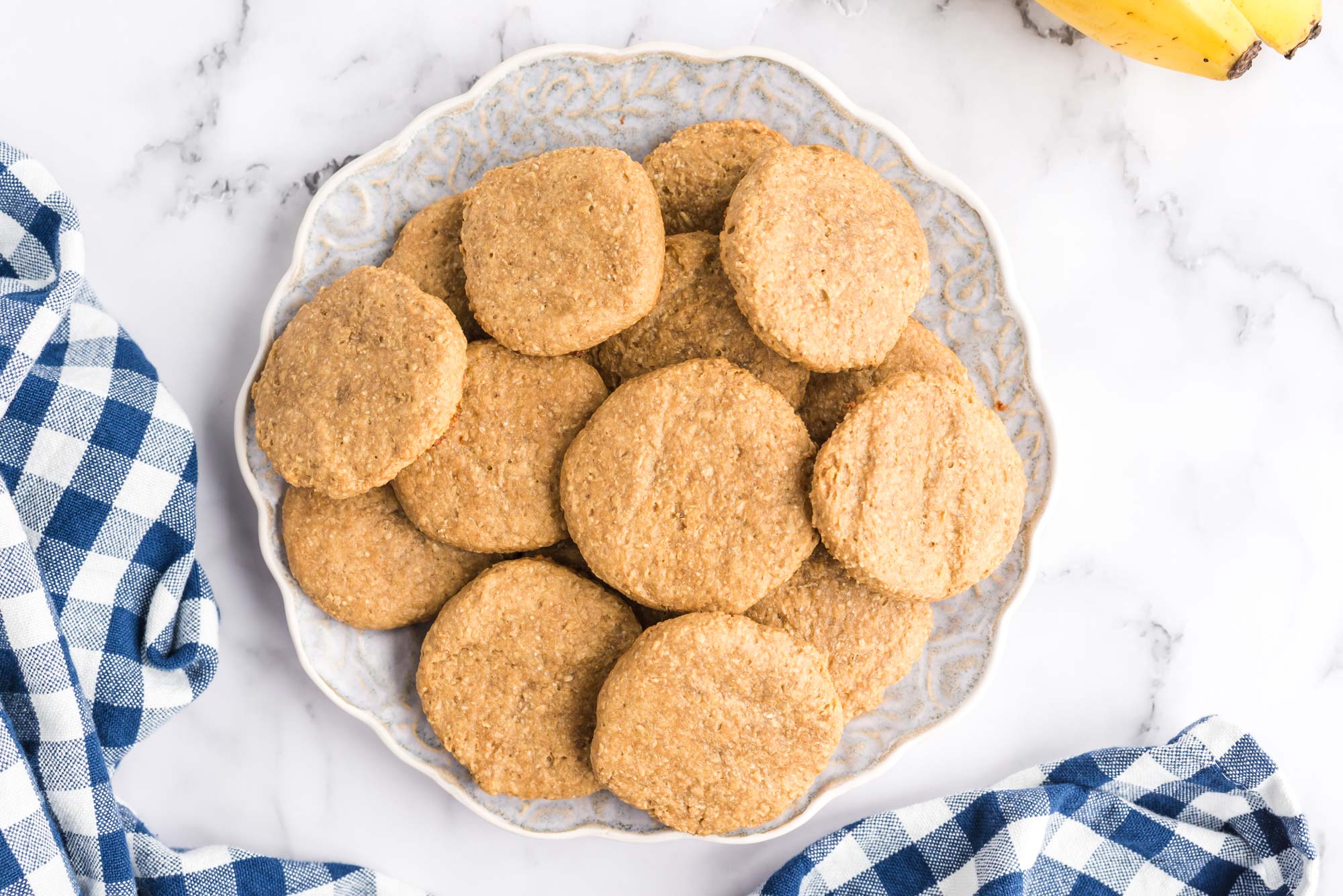
Starting the day with these four-ingredient breakfast cookies will help to lay the groundwork for healthy digestion thanks to the prebiotics and fiber in the oats and banana. You’re also getting a nice dose of B vitamins and zinc to help calm any anxiety you may be feeling. Enjoy the cookies in the morning or throughout the day as a high-fiber, nutrient-dense snack!
2. Ginger Carrot Edamame Noodles
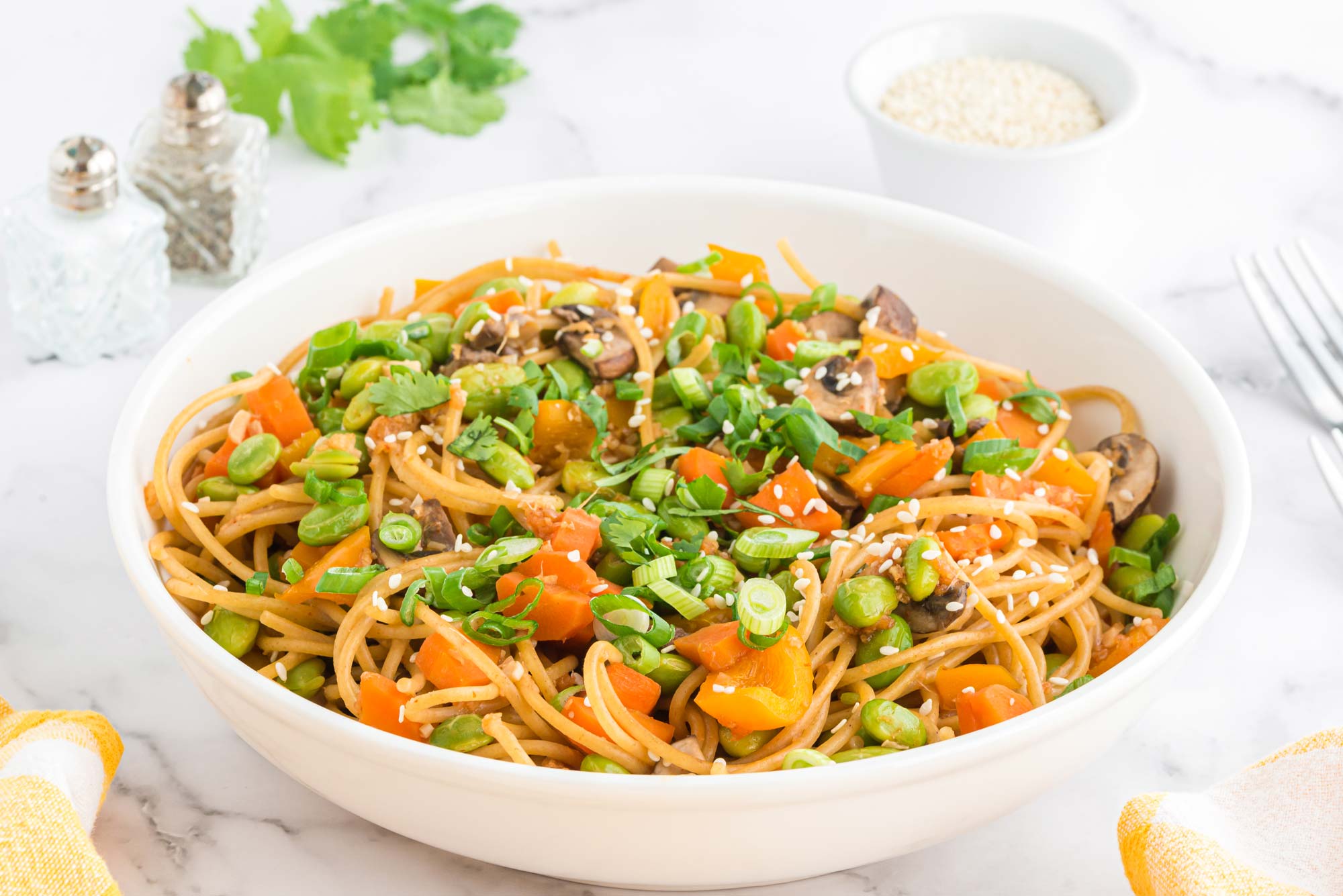
This dish has all of the elements to optimize gut health (and, therefore, mood): fiber, prebiotics, probiotics, and phytonutrients — not to mention, lots of other stress-fighting nutrients. Find probiotics and B-vitamins in the miso, protein and zinc in the edamame, gingerol (a phytonutrient) in the ginger, and adaptogenic compounds in the mushrooms. Bonus: this dish also tastes exquisite!
3. Coconut Lime Quinoa and Asparagus
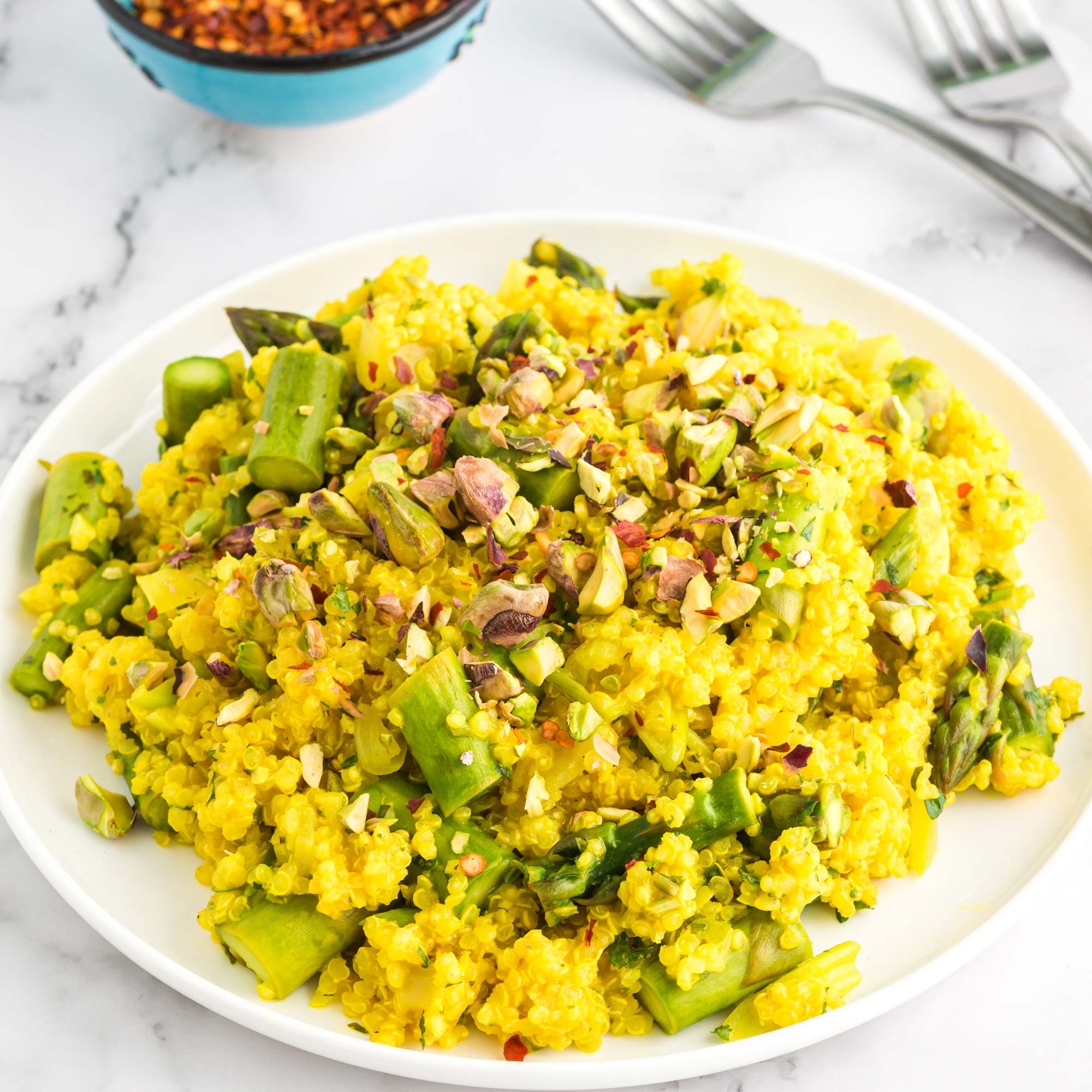
Sure, this dish is super satisfying to your taste buds, but that’s not all it’s good for! It’s also full of anti-anxiety nutrients. The B vitamins, iron, and zinc in the quinoa and pistachios help to support mood. While the fiber-rich, plant-based ingredients and prebiotic-rich asparagus and onions foster good gut health.
4. Blueberry Chia Oat Crumble
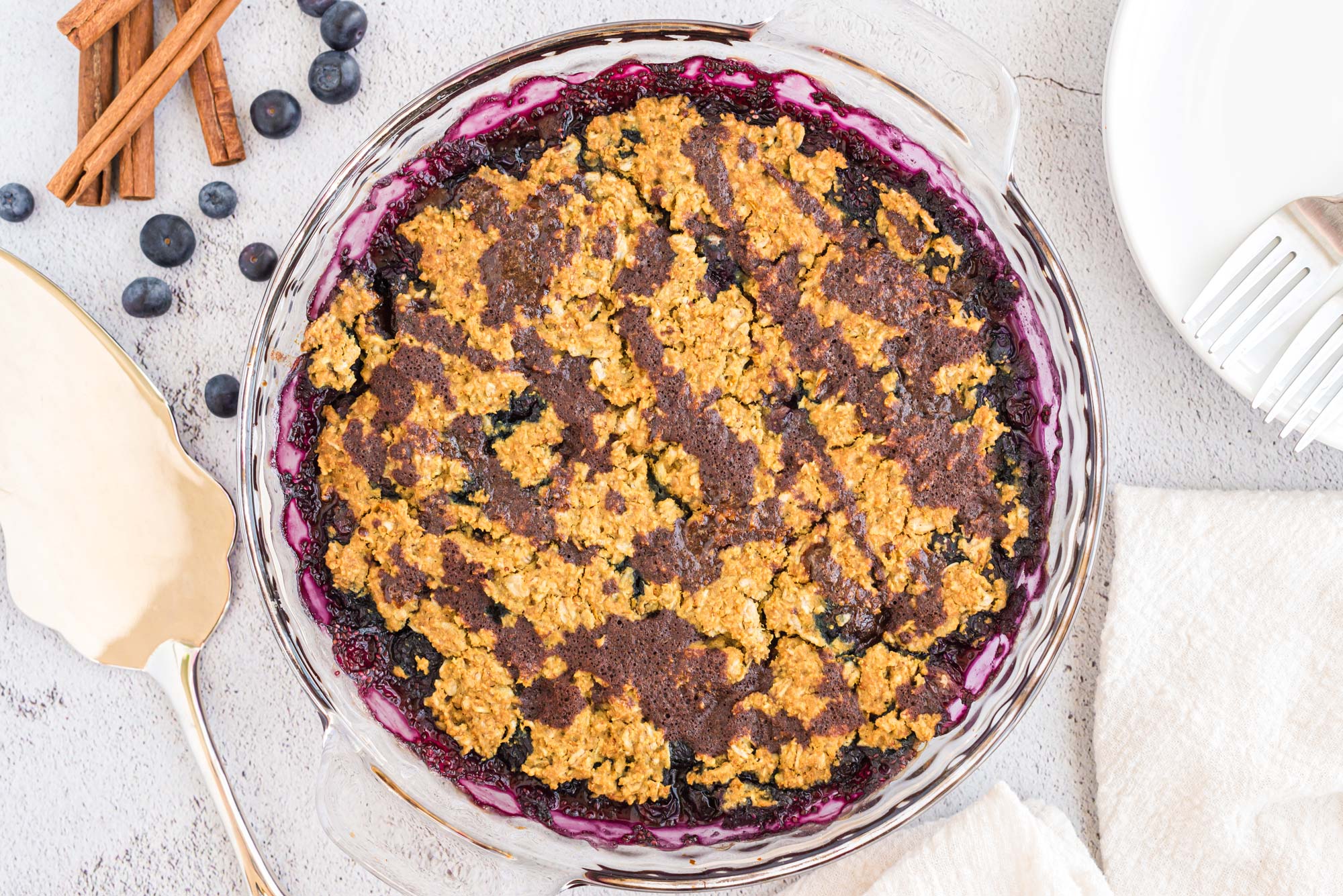
It’s no secret that blueberries are chock-full of antioxidants. Enjoy this fun way to boost your blueberry intake, while getting a hefty dose of mood-supporting omega-3s from the chia seeds. This crumble is delicious for breakfast, as a snack, or as a sweet treat after a meal.
5. Soothing Spiced Matcha Tea
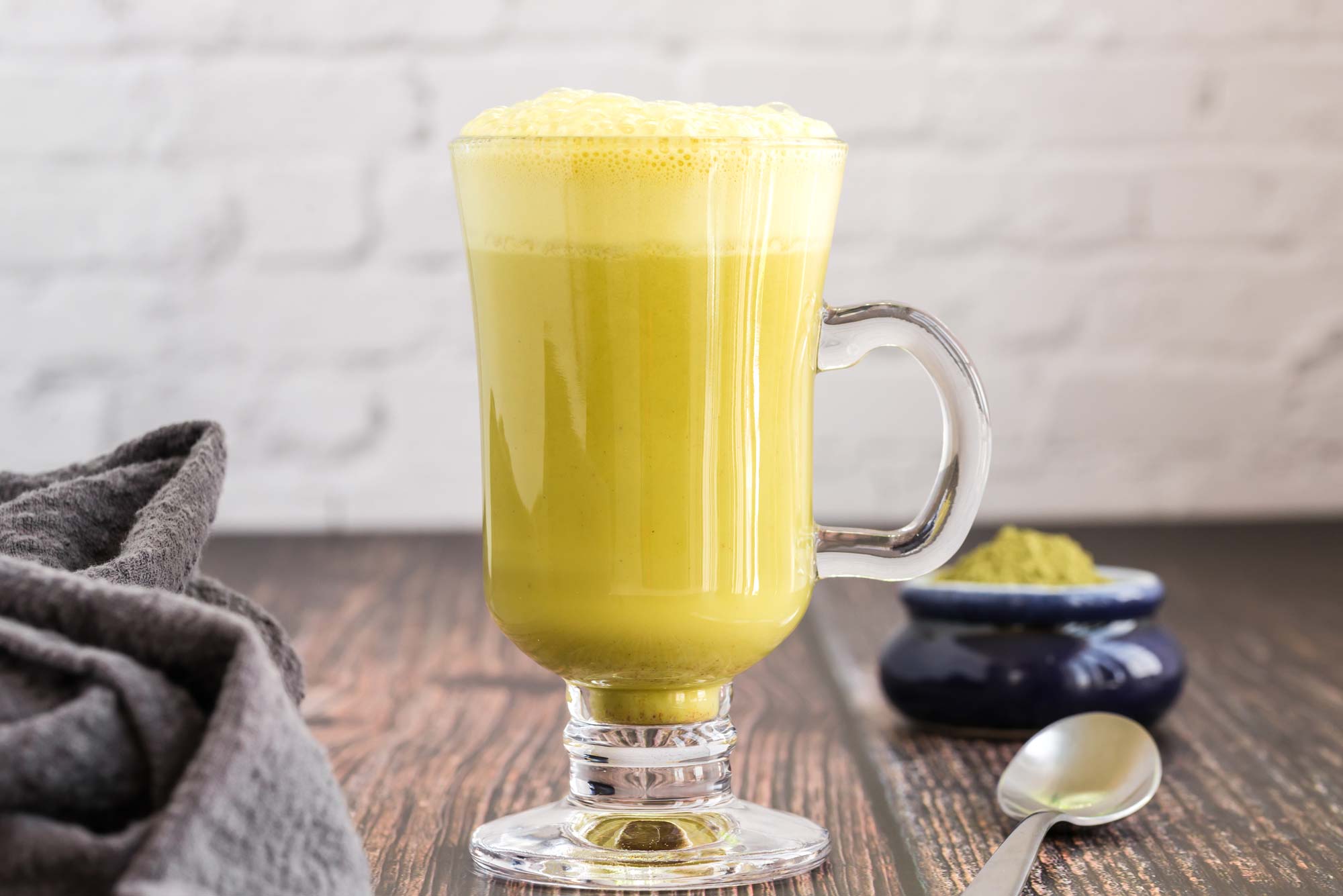
Matcha and turmeric are the superstars here. Start your day with this Soothing Spiced Matcha Tea for a calm, sustainable energy boost and a gentle sense of awareness and focus. Give it a try in place of a cup of coffee. And let us know how it makes you feel!
Other Lifestyle Strategies for Anxiety Self Help
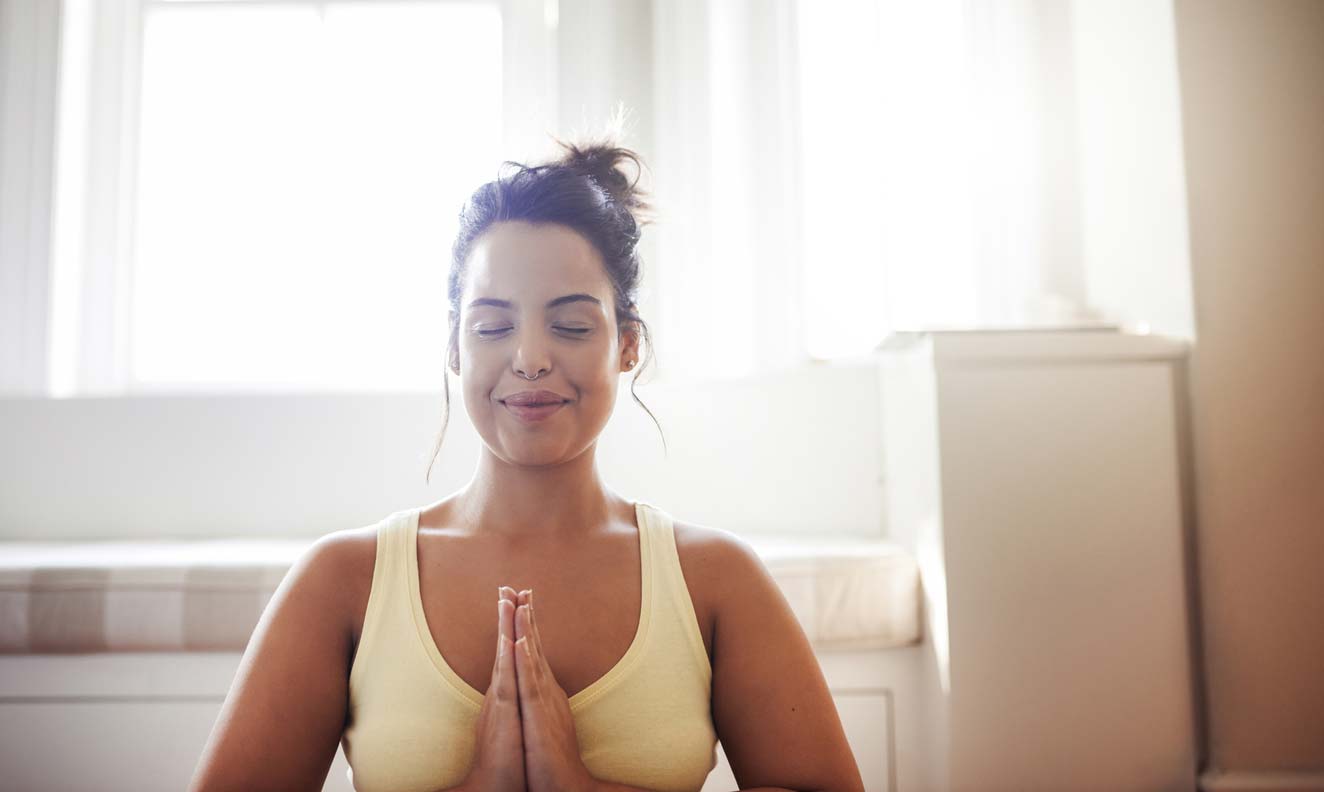
Since anxiety is characterized by worry about things that aren’t usually a real and present threat, engaging in mindfulness practices that train your attention on the here and now can effectively reduce anxiety. Consider these strategies as additional anxiety resources to calm your mind and center your body in the here and now.
Mindfulness Meditation
A 2013 study of 93 subjects found that eight weeks of mindfulness meditation was more effective in reducing generalized anxiety disorder symptoms than a cognitive approach to stress management. Staying mindful during symptoms of anxiety can also help mitigate them. Rather than fighting with anxiety, mindfulness allows you to just notice how you’re feeling and what you’re thinking without reacting or focusing on anxious thoughts.
Yoga
Yoga and other mindful movement practices are proven ways to expand a sense of safety in your body. One study found that 12 weeks of guided yoga practice reduced anxiety (as well as depression and stress) in a group of 53 women in their 30s. A 2015 meta-analysis also confirmed this finding, looking at 17 studies that found hatha yoga practice was an effective treatment for anxiety.
Spirituality
Similarly, exploring spiritual practices may reduce anxiety through increasing hope and reframing personal problems. For some people that may mean looking to a specific religion for guidance. But anything that allows you to safely and peacefully connect with a higher power can serve as a means to spirituality.
Acupuncture
Acupuncture may be as helpful in treating anxiety as cognitive behavioral therapy. And it was rated more relaxing and less stressful than psychotherapy in a 2011 review. In Chinese Medicine, using acupuncture needles on specific pressure points throughout the body can calm down the central nervous system and activate the relaxation response from the parasympathetic nervous system. Several studies show acupuncture impacted the severity of anxiety and related symptoms, such as elevated heart rate and panic attacks.
Exercise
Exercise of any kind is tremendously beneficial for physical and mental health. Remember, in nature, the “cure” for anxiety — the very temporary freezing that allows the organism to make an informed choice in the face of sudden danger — is to shift into a successful fight-or-flight strategy. Going for a run, taking a spin class, or simply engaging in vigorous gardening or housecleaning mimics the fight-or-flight reaction. Engaging in exercise uses up the stress hormones released in the anxious state and helps to restore physical and mental equilibrium. A 2018 meta-analysis of 15 studies, including 675 patients, found that while all exercise was effective against anxiety, more vigorous exercise helped the most.
Aromatherapy
Aromatherapy or the use of scents (typically essential oils sourced from plants) has also proven itself as a useful tool in dealing with anxiety. Several clinical trials from Germany showed that lavender oil was effective in reducing symptoms of anxiety. Other oils that show promise include bergamot, lemon, chamomile, clary sage, neroli, and ylang-ylang.
Sleep
Sleep is another two-way street connected to anxiety. Poor sleep can trigger anxiety. And anxiety can lead to bedtime rumination and insomnia. Helpful approaches to improving sleep include stress management, improved eating (both quality and timing), cognitive behavioral therapy to establish sleep routines and create sleep triggers in the bedroom, and exercising to increase the sleep drive when it’s shut-eye time.
Social Connections
Social connection is one of the most important buffers against mental health problems, including anxiety. Feeling connected to others can decrease rates of depression and anxiety. In fact, receiving hugs are scientifically proven to reduce negative moods such as anxiety. While not everyone is a hugger (and it may not be safe to hug people outside your household because of the pandemic), you can also hug your pet, a stuffed animal, or even a tree if you feel so inclined.
Embracing Self Help Strategies and Resources for Anxiety
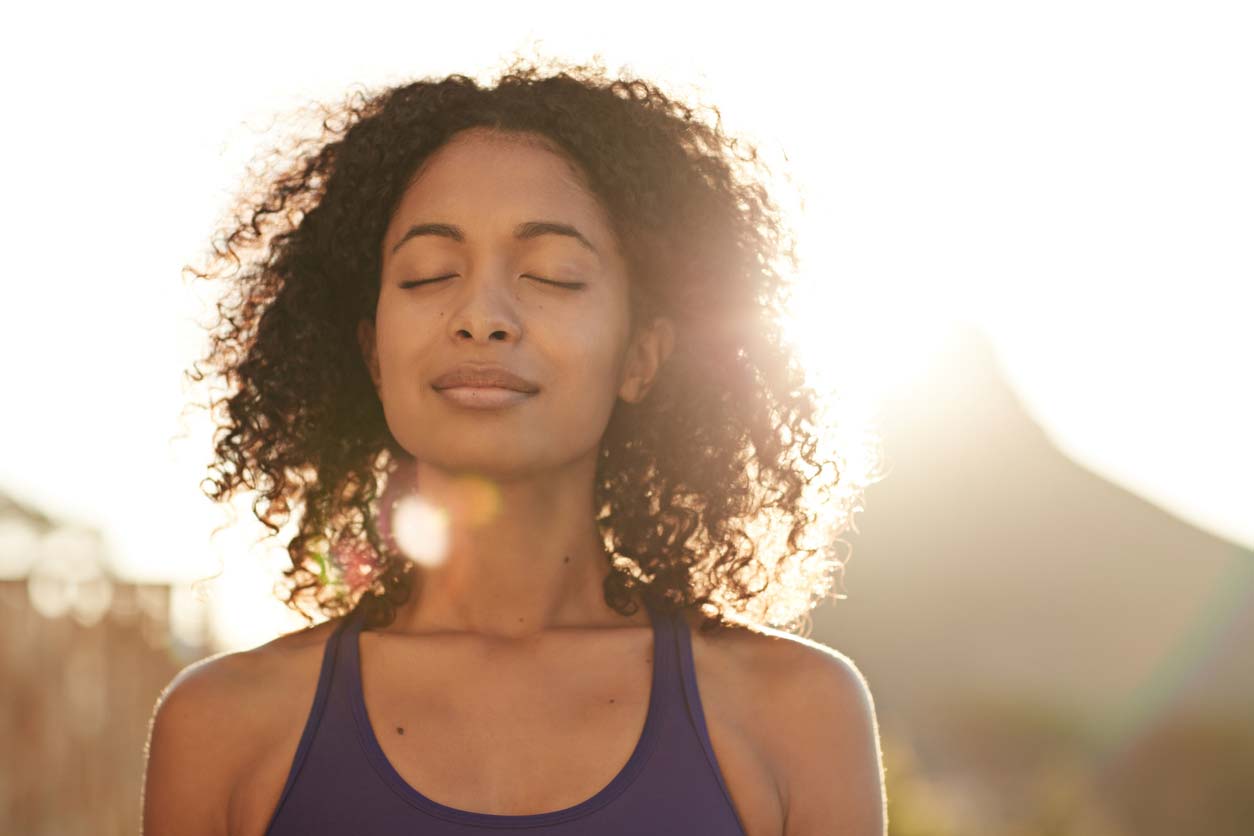
Anxiety can seem daunting, especially when you’re in its grip. Some of the factors that cause it are beyond your control, such as external events and your own genetics and life history. But the good news is, your diet and lifestyle choices can have an enormously positive impact, both short- and long-term.
If you’re suffering from anxiety, remember, you’re not alone. There are a lot of organizations and anxiety resources that you can lean on to make it through a tough time. If you’re in crisis and need someone to talk to right away, you can use your cell phone to text HOME to 741741 (in the US) and speak to a crisis counselor.
The Anxiety and Depression Association of America (ADAA), Anxiety Canada, and Anxiety UK are charities and patient advocacy groups that also offer anxiety resources based on your region. The ADAA also has coronavirus-specific anxiety resources if you’re struggling more because of the pandemic. And Psychology Tools offers a coronavirus anxiety guide as well.
Tell us in the comments
- Have you ever struggled with anxiety?
- What’s worked for you in dealing with anxiety?
- Are there any new self help approaches to anxiety you want to try?
Feature image: iStock.com/DjelicS




